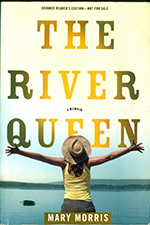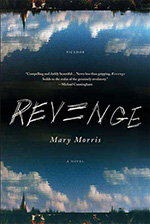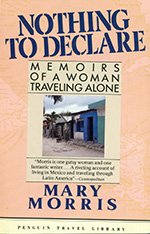
My father had a tremendous fear of getting lost. He hated it if we didn't know where we were. This was one of the reasons why we always had to travel on highways and interstates. Back roads were not for my dad. Not that we traveled very far anyway. We'd go to Liganeer, Indiana where his friends had a house on a lake. Or we'd drive up to the Dells. But that was about it for my dad. Travel made him nervous. Getting lost made him afraid.
So from an early age I put myself in charge of the maps. I'd sit, AAA map open on my lap, deciphering which way we should go. Once in bumper to bumper traffic, I told my father that if he took a certain exit and we drove a different way, we'd be all right. Well, we weren't really moving so he agreed. Perhaps I was ten years old, but I'm not sure I ever saw him more proud of me as I navigated us home. From that moment on I've made sure to know more or less where I was, but also I wasn't afraid of getting lost.
I like maps. I like having them and looking at them. I enjoy thinking about where I want to be. But I am also content to travel without them. I am also happy to put them aside and follow my nose which has gotten, over the years, to have a fairly good sense of direction. A student of mine shared this quote from Michael Ondaatje which perhaps says it best. "All I desired was to walk upon an earth that had no maps."
It was my mother who took me on my first real journey. I wasn't much more than thirteen when she came into my room and told me to get dressed. We were going into the city. "To the passport office," she said. Because my father refused to travel with her, I was drafted. A few weeks later, as my friends were heading off to cottages on lakes and summer camp, I was reluctantly on a flight to Paris. We stayed at the Hotel Vendome where my mother ordered peach melba and washed her feet in the bidet. Then on to Rome where we both laughed at the bus driver who kissed his wife and baby good-bye in Rome and kissed another woman hello in Florence.
By the time we reached London my mother was tired. We'd been traveling together for three weeks. As our taxi sped through the streets of London, we passed a fruit cart. And my mother said, "Oh, I'd love some of those peaches." A few minutes later we were at our hotel. We checked in. My mother told me she wanted to rest. She lay down and she fell fast asleep. But I wanted an adventure, not a nap. So I set out. I had more or less memorized the route. A right here, a left. But I really didn't know where I was going. And I didn't very much care. I kept walking until I came to a big square which I went around. And there was the fruit stand.
When I got back to the hotel, my mother was sitting up, waiting for me, as I lay a bag full of peaches and plums at her bedside. "How did you find that fruit stand?" she asked, incredulous. "Didn't you get lost?" I followed my nose, I told her. I backtracked. In truth I didn't really know where I was going. Perhaps I got a little lost, but I didn't much care. Except I wanted to bring my mother back some fruit. Some of the best things in my life have happened to me when I didn't know where I was going. Or even when I was lost.
When I missed the last metro in Paris, I spent a whole night, wandering through the Champs de Mars. In Italy I have lost myself on winding streets that seemed to double back on one another. It has never much mattered. For me that is where adventurers begin. That train you didn't catch, that passing comment made by a stranger. "Oh, if you're going to so and so, then you must see..." How often we have taken a stranger's advice and not followed our maps. And how often this made all the difference.
I think of Virgil in Dante's Inferno which begins with those ominous lines, "In the middle of the journey of my life, I found myself in the dark woods where the straight way was lost." It is only by being lost in hell that Virgil makes his way to paradise. Not knowing exactly where we are isn't such a bad thing. After all in life we are traveling more or less without a map. Or we throw ourselves into the hands of pyschics who profess to see the road we cannot see. But I think it is a good thing not to know what's ahead.
As E.L. Doctorow once said about writing fiction, it's like driving down a country road at night. You can't see farther ahead than your headlights. And Flannery O'Connor understood the importance for both the writer and the reader of surprise. As a writer and as a traveler some of my happiest memories come from the moments when I wasn't entirely sure of where I was going or where a certain road might take me. Sometimes to a dead end. Sometimes it takes me to a vineyard or a view of the sea. Since that day with my father in the car I have learned to trust my instincts.
Often the journey, like the story, happens in the detours and digressions. I don't think we should be afraid of not knowing where we are. Unless there is actual danger, I rarely am. Once I had this dream. I dreamt I was flying in space and that I could go anywhere. I was flying and flying like a migrating bird. But I could never get lost. My belly button was equipped with navigational redial. I just had to push that button and I'd fly home.










Marykins, I rarely remember to get on Facebook which is mostly boring to me, so reading your "getting" lost musings was magical. Merci e grazie, Ellen
ReplyDeleteI'm really appreciating your blog, Mary. This entry is lovely, as always.
ReplyDelete-Leora
Thanks so much, Leora. So glad you are enjoying it. I am having a great time writing it. Mary
ReplyDeleteEllen...are you my long lost friend from Boston??? Not many people call me Marykins any more. Listen follow my blog. Then you don't have to go through FB. And I am so glad if this seemed "magical" to you. xoxo Mary
ReplyDelete